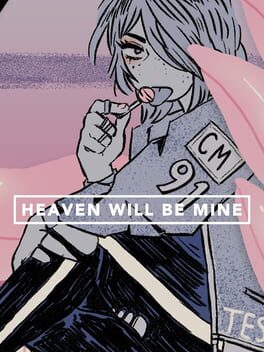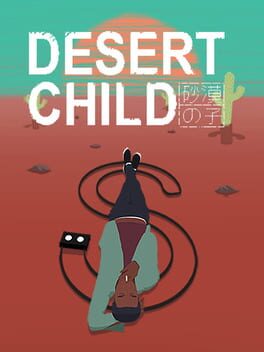AstronomyBard
2019
This game was a surprise, a pleasant gift after 2 years of fighting cancer and helping my mom go through the first of two operations needed for her to ease the pain in her legs. This game is a sigh of relief and sheer joy and amusement. Through simplicity, it manages to create a humble, but powerful experience. In a way, it reminded me of Whitman’s verses: «All truths wait in all things». This game understands that beauty is everywhere, and it is something we all share in different ways. It’s been a while since I felt such playfulness and childlike joy from playing a game, only to end with must be one of the best endings I have ever experienced in a videogame ever.
This game is special. I deeply love this game, and I’m thankful I got to play it.
This game is special. I deeply love this game, and I’m thankful I got to play it.
2018
I have always loved the underlying themes and social and psychological implications of the mecha genre. I have watched and played anime and games respectively that question the elements from which mecha is built, but I had never played something like Heaven Will Be Mine: it goes beyond its genre.
At their core, these stories are always about the people piloting the robots, but Heaven takes both the superficial plot elements of the mecha genre and its inherent, mind-bending themes newer stories have as a well-structured, but ultimately backdrop to the relationships between the pilots. I was amazed at how they made it work so well. The writing is excellent and reminded me of how I look for myself and my interests in everything I read.
At their core, these stories are always about the people piloting the robots, but Heaven takes both the superficial plot elements of the mecha genre and its inherent, mind-bending themes newer stories have as a well-structured, but ultimately backdrop to the relationships between the pilots. I was amazed at how they made it work so well. The writing is excellent and reminded me of how I look for myself and my interests in everything I read.
2018
Deconstructeam strikes again! I found this game deeply disturbing. I have a deep fear of cutting and dissecting, but the narrative had me hooked and made me endure, along with the character, the depiction of self-harm. The use of absence in how this game creates its story is fascinating: both what happens in the game and what is not told at all are key to understanding what is really taking place in this plot.
Choosing the different paths, guessing and even deciding for a narrative that made sense to the player was ingenious. Every option and path were secretive, with disturbing ramifications. I was blown away by the possibility of building a story from memories I was building in the moment.
I have personally had issues with both my body and mind seeming either someone else’s or just not mine at all. Finding a videogame that explores this idea was moving.
Choosing the different paths, guessing and even deciding for a narrative that made sense to the player was ingenious. Every option and path were secretive, with disturbing ramifications. I was blown away by the possibility of building a story from memories I was building in the moment.
I have personally had issues with both my body and mind seeming either someone else’s or just not mine at all. Finding a videogame that explores this idea was moving.
2018
I was surprised by how this short game packed such a lengthy amount of gameplay and even lore. I consider this game an example of how to build a narrative from various, scattered pieces of its world. Even if getting currency in the game seemed to be the main objective, I found fun in poking between the stores and seeing so many different persons walking around. There were moments I saw myself living in this (awful) world and, even through the hardships, I thought it would at least be interesting to live in such a sincere world.
The gameplay is fast paced and fragmented, the kind you can freely leave and pick again, but I just couldn’t resist to keep playing it! During my short playthrough, I glimpsed an intricate system to improve the racing segments and I’m looking forward to getting back to it and get good at it.
I think Desert Child was appealing to me because of its sincere, humble approach to a racing game with a plot full of references to current affairs, while also keeping it cheery and fun.
The gameplay is fast paced and fragmented, the kind you can freely leave and pick again, but I just couldn’t resist to keep playing it! During my short playthrough, I glimpsed an intricate system to improve the racing segments and I’m looking forward to getting back to it and get good at it.
I think Desert Child was appealing to me because of its sincere, humble approach to a racing game with a plot full of references to current affairs, while also keeping it cheery and fun.
2019
The last game I played last year. In 2019 I also got to finally finish Alan Wake and even if both games are mechanically different, the writing and the style are both superb and engaging. Control’s dialogue is a bit more polished, and the characters are far more diverse. Even if I agree with the multiple comparisons other critics have made with SCP, I still think Remedy Games succeeded in developing something that takes the best aspects of lore-centric writing and incorporating those to a cohesive narrative that kept me hooked all the game through.
The loop of shooting and throwing objects to enemies was never tiring, I can really appreciate the effort to create such a loop to keep combat interesting, along with the new skills I obsessed over to acquire and improve.
Ultimately, I loved Control because it related to my interest in creating believable and creative worlds through both writing a script for an ongoing narrative and the multiple texts that add to the story and the lore. Not to mention I love, love the futility of applying bureaucracy and organization to chaotic and paranormal matters. Control is a treat to play and decipher.
The loop of shooting and throwing objects to enemies was never tiring, I can really appreciate the effort to create such a loop to keep combat interesting, along with the new skills I obsessed over to acquire and improve.
Ultimately, I loved Control because it related to my interest in creating believable and creative worlds through both writing a script for an ongoing narrative and the multiple texts that add to the story and the lore. Not to mention I love, love the futility of applying bureaucracy and organization to chaotic and paranormal matters. Control is a treat to play and decipher.




